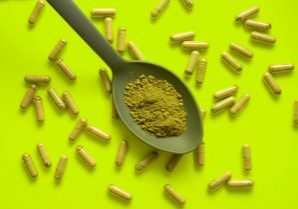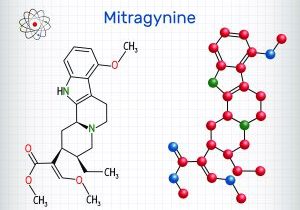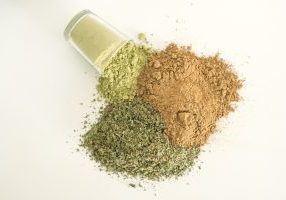There are many who enjoy kratom on a regular basis but don’t know much about how it actually works. There are others who are curious about trying kratom for the first time, but they can’t find enough reliable information online to really feel confident using it. Why is it that this uncertainty exists around the subject of kratom?
Unfortunately, legality is a big part of why sellers like us cannot say more about kratom when we are marketing our products. While we know a lot about this botanical, how it works, and what it could do for you, we could be breaking the law if we weren’t careful about how we describe and market our product.
Understanding why things are set up like this can be confusing, but the situation doesn’t have to stay like this forever! That’s right; it is possible for this situation to change if the right types of time, money, and effort are put into the world.
Today, we’ll be sharing what we know about the rules that prevent kratom companies like us from discussing certain topics with consumers. Then, we’ll let you know what YOU can do to help this problem improve in the future of the kratom industry.
How The FDA Regulates “Claims” Marketing
There are tons of different rules and regulations that the Food and Drug Administration uses to help protect consumers in America from mislabeled or otherwise dangerous products. Like any other seller on the market, we are liable to follow these regulations.
Generally speaking, the FDA recognizes two types of claims:
- • Health claims
- • Structure/function claims

What Are Health Claims?
Health claims are a type of claim that specifically links a substance to a disease or health-related condition. Health claims can only be used for drugs that have been approved by the FDA to treat diseases.
In this type of claim, the product is marketed as a specific solution to a problem. For example, allergy eye drops are specifically formulated to contain some ingredients which soothe itchy eyes and are marketed as such. This would fall into the category of a health claim, and the claim would need to be pre-approved by the FDA before any marketing begins.
Saying that eating carrots helps maintain your sense of sight, however, would not be considered a health claim because it is not targeting a specific health condition. This is considered a structure/function claim.
What Are Structure/Function Claims?
The other type of claims that the FDA deals with frequently are the structure/function claims. These claims are more general and talk about how nutrients and ingredients can change or affects the body’s functions.
For example, saying that vitamin A helps improve vision is a structure/function claim.
These types of claims can be added to products in the US without any FDA pre-approval, but the information must be passed to the FDA within 30 days. Additionally, you must have substantial evidence to support your claim. Finally, disclaimers must be added to all packaging to let customers know that the FDA did not review the claims.
The Trouble With Kratom
Now that you have a little bit of background knowledge about how the FDA deals with drug and supplement related approvals, let’s talk about the trouble with kratom.
Kratom is not an FDA-approved drug, therefore it cannot use any health claims. What’s tricky is that the FDA also does not consider kratom to be a supplement, therefore structure/function claims are off limits too.
Health & Structure/Function Claims Do Not Apply
While you can use health claims or structure/function claims to market some products, the same cannot be said about kratom.
In the case of health claims, there is no FDA-supported evidence that kratom has any positive effects at this time. For that reason, the FDA will not pre-approve any statements about kratom to be used as health claims.
In the case of kratom, structure/function claims are also prohibited. While the base compound found in kratom (mitragynine) has been shown to have effects on the body, there is not yet a solid baseline measurement for the body’s natural level. This means that comparing the function of kratom to the body’s normal function is impossible.
And for that reason, we as vendors become severely limited in what we can and cannot say about kratom!

Why We Think This Needs To Be Changed
Ideally, the day will come when we can legally describe the effects that kratom may have, like many other botanicals currently on the market. Unfortunately, there are a lot of barriers to making this happen.
Many vendors have lied, sold dangerous product, or otherwise caused problems within the kratom community over the years. Due to their irresponsibility, reliable vendors like us have to suffer from the negative perception that both members of the general public and the FDA have about kratom.
If the perception of kratom never changes, the bad vendors will never be held accountable, and consumers will be continually put at risk of buying a poorly made, unregulated product.
You Can Be The Change
While there are vendors like us and organizations like the American Kratom Association fighting for our rights to use kratom safely and freely, we can’t do it alone. To truly have an impact on how the kratom industry grows and changes in the future, we need all kratom lovers to join us in pushing back against negative perception.
There are a number of things that we would love for you to do to help us save the future of Kratom from becoming even messier than it already is:
- • Buy from vendors that are part of the AKA Good Manufacturing Program
- • Share your stories about kratom online
- • Reach out to your local legislatures about kratom laws
- • Encourage the establishment of Kratom Consumer Protection Laws
With your help, we can ensure that kratom remains a safe and legal botanical to use as the years go by!











